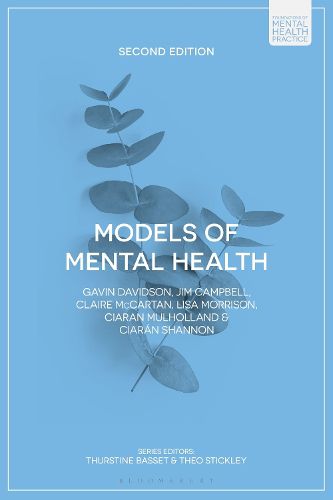Readings Newsletter
Become a Readings Member to make your shopping experience even easier.
Sign in or sign up for free!
You’re not far away from qualifying for FREE standard shipping within Australia
You’ve qualified for FREE standard shipping within Australia
The cart is loading…






A comprehensive understanding of the different theoretical models in mental health is essential when working with people with mental health difficulties.
Brought together by a multidisciplinary team, this book presents a critical overview of the key theoretical perspectives that underpin mental health practice, examining both traditional and contemporary schools of thought. Offering an accessible foundation for expanding your knowledge, the authors argue that no single theory provides a complete framework for practice on its own, highlighting how each theory has contributions, strengths and limitations.
New to this edition: Two brand new chapters exploring intersectional and environmental perspectives Expanded coverage of LGBTQIA+ and trauma-informed models, featuring two new authors with expertise in trauma-informed, recovery-focused approaches and evidence reviewing Greater focus on service-user led knowledge and experience
Supported by a range of exercises and case studies, this book remains an essential resource for anyone studying or practising in the field of mental health.
$9.00 standard shipping within Australia
FREE standard shipping within Australia for orders over $100.00
Express & International shipping calculated at checkout
Stock availability can be subject to change without notice. We recommend calling the shop or contacting our online team to check availability of low stock items. Please see our Shopping Online page for more details.
A comprehensive understanding of the different theoretical models in mental health is essential when working with people with mental health difficulties.
Brought together by a multidisciplinary team, this book presents a critical overview of the key theoretical perspectives that underpin mental health practice, examining both traditional and contemporary schools of thought. Offering an accessible foundation for expanding your knowledge, the authors argue that no single theory provides a complete framework for practice on its own, highlighting how each theory has contributions, strengths and limitations.
New to this edition: Two brand new chapters exploring intersectional and environmental perspectives Expanded coverage of LGBTQIA+ and trauma-informed models, featuring two new authors with expertise in trauma-informed, recovery-focused approaches and evidence reviewing Greater focus on service-user led knowledge and experience
Supported by a range of exercises and case studies, this book remains an essential resource for anyone studying or practising in the field of mental health.